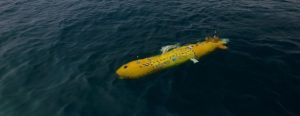- ...
Postgraduate Studentships - Search for funding opportunities.


Mr Alan Williams
Media & Communications Officer
10 May 2019
Artificial intelligence (AI) could help scientists shed new light on the variety of species living on the ocean floor, according to new research led by the University of Plymouth.
With increasing threats facing the marine environment, scientists desperately need more information about what inhabits the seabed in order to inform conservation and biodiversity management.
Autonomous underwater vehicles (AUV) mounted with the latest cameras are now able to collect vast amounts of data, but a bottleneck is still created by humans having to process it.
In a new study published in Marine Ecology Progress Series, marine scientists and robotics experts tested the effectiveness of a computer vision (CV) system in potentially fulfilling that role.
They showed on average it is around 80% accurate in identifying various animals in images of the seabed, but can be up to 93% accurate for specific species if enough data is used to train the algorithm.
This, scientists say, demonstrates CV could soon be routinely employed to study marine animals and plants and lead to a major increase in data availability for conservation research and biodiversity management.
Find out more about postgraduate study at the University of Plymouth here

Postgraduate study opportunities at University of Plymouth About us At the University of Plymouth, we are proud to be a top 3 modern UK university (T...